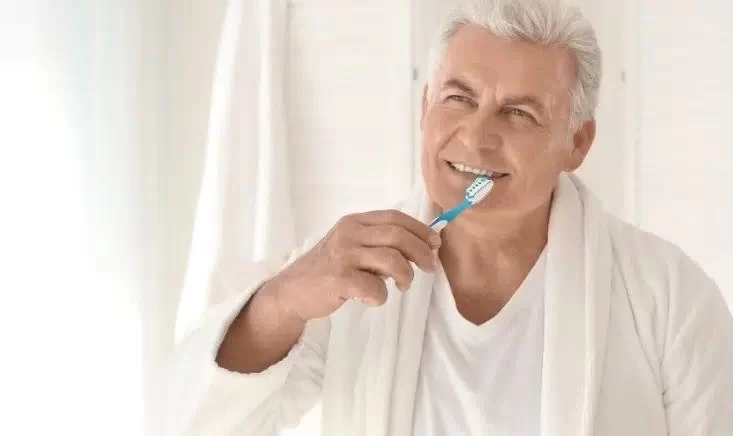
Essential Dental Care Tips for Seniors and Aging Adults
- 1. The Importance of Oral Health for Seniors
- 2. Common Dental Issues in Aging Adults
- 3. Effective Dental Care Tips for Seniors
- 4. Maintaining Healthy Gums in Older Adults
- 5. The Importance of Regular Dental Visits
As we age, our bodies undergo various changes, and our dental health is no exception. When I first started noticing changes in my teeth and gums as I got older, I realized that maintaining oral health in senior years can be a bit more challenging than when I was younger. Over time, I’ve learned that dental care for seniors requires special attention to keep our teeth and gums healthy and functional. Let’s dive into the essential dental care tips for seniors and aging adults, and explore how these tips can help us maintain a bright, healthy smile well into our later years.
1. The Importance of Oral Health for Seniors
For many aging adults, dental health often takes a backseat to other health concerns. However, oral health is crucial for maintaining overall well-being, especially as we age. I've come to understand that oral hygiene isn’t just about keeping our teeth looking good—it’s directly tied to our overall health. Poor dental health can lead to serious complications, including heart disease, diabetes, and respiratory problems. This is why it’s important for seniors like me to prioritize regular brushing, flossing, and professional dental care.
As I’ve noticed with my own experience, the condition of your teeth and gums can influence your self-esteem and quality of life. Issues like bad breath, tooth sensitivity, or even losing teeth can make daily life uncomfortable. Fortunately, with the right approach to dental care, it’s possible to maintain oral health well into our later years. The key is to develop habits and routines that work for our changing bodies.
2. Common Dental Issues in Aging Adults
Over the years, I’ve seen a number of common dental issues affecting seniors, and I’ve experienced some of them myself. One of the most common problems I’ve encountered is tooth decay. As we age, the enamel on our teeth naturally wears down, which makes them more vulnerable to cavities. Moreover, our saliva production decreases with age, which can lead to dry mouth, making it more difficult to wash away food particles and bacteria.
Another issue I’ve experienced firsthand is gum disease. As we get older, the tissues that hold our teeth in place may start to recede, leading to gum disease or periodontitis. This can cause our gums to bleed, swell, and even recede further, potentially leading to tooth loss. In addition to these issues, seniors may also experience tooth sensitivity, especially when consuming hot or cold food and drinks.
Understanding these common dental issues has helped me stay vigilant in caring for my teeth. The good news is that by taking proactive steps, many of these issues can be prevented or managed. For example, using toothpaste designed for sensitive teeth and staying hydrated can help alleviate some of these discomforts.
3. Effective Dental Care Tips for Seniors
Maintaining good dental hygiene as a senior can feel daunting, but with the right tools and knowledge, it’s easier than it seems. Here are some effective dental care tips for seniors that I’ve found to be incredibly helpful:
Brushing and Flossing Regularly
One of the first things I was told by my dentist was to continue brushing and flossing regularly. This may sound simple, but it’s essential. I use a soft-bristled toothbrush to avoid irritating my gums and toothpaste that contains fluoride to help fight cavities. I also floss at least once a day to remove food particles and plaque from between my teeth, which helps prevent gum disease.
Use an Electric Toothbrush
I’ve found that an electric toothbrush is often more effective at removing plaque compared to a manual toothbrush. The rotating and vibrating motions do a better job at cleaning my teeth, especially in hard-to-reach areas. If you’re struggling with arthritis or dexterity issues, an electric toothbrush can be a real game-changer.
Stay Hydrated
One of the easiest yet most important tips for seniors is to drink plenty of water. Dehydration can lead to dry mouth, which increases the risk of tooth decay and gum disease. I make sure to carry a water bottle with me throughout the day and sip regularly to keep my mouth hydrated and my saliva flowing.
Use Mouthwash
Mouthwash is a great addition to my oral care routine. I use an alcohol-free mouthwash that helps reduce plaque, fights bad breath, and strengthens my gums. It’s a simple and effective way to complement brushing and flossing.
4. Maintaining Healthy Gums in Older Adults
As we age, our gums can become more susceptible to inflammation and disease. Keeping my gums healthy has been just as important as taking care of my teeth. I’ve made a habit of gently massaging my gums with my toothbrush to improve circulation, and I’ve also used antimicrobial mouthwashes to fight gum disease. Regular visits to the dentist for professional cleanings also help in keeping my gums in top condition.
Gum recession is another issue that often affects seniors. As we get older, the gums may naturally pull back, exposing the roots of our teeth. This can make teeth more sensitive and prone to decay. To combat this, I’ve been extra careful when brushing to avoid irritating the gums and always use toothpaste designed for sensitive teeth.
5. The Importance of Regular Dental Visits
As much as I’ve learned to take care of my teeth and gums at home, regular dental check-ups have been key to maintaining my oral health. I visit my dentist every six months for a professional cleaning and examination. These visits allow my dentist to catch any issues early, such as cavities, gum disease, or even oral cancer, which can be more common in older adults.
During my dental visits, my dentist also checks for any signs of tooth wear or damage that could be related to aging. They can suggest treatments to prevent further deterioration, such as fluoride treatments or dental sealants. These professional visits provide me with peace of mind and ensure that I’m not missing anything when it comes to my dental health.
By taking these steps—brushing, flossing, staying hydrated, and visiting the dentist regularly—I’ve been able to keep my teeth and gums healthy well into my senior years. If you’re interested in learning more about dental care for seniors, I highly recommend checking out Dentistry Toothtruth, where you can find more tips and advice tailored to senior oral care.







 Midwest Dental Implantology Dr. Tricia Crosby, Dr. Martin Kolinski, Dr. William Trahan4.0 (49 review)
Midwest Dental Implantology Dr. Tricia Crosby, Dr. Martin Kolinski, Dr. William Trahan4.0 (49 review) Dental Analysis Family Dentistry4.0 (92 review)
Dental Analysis Family Dentistry4.0 (92 review)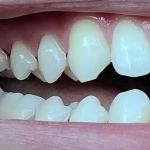 Stephanie Dental Group4.0 (250 review)
Stephanie Dental Group4.0 (250 review)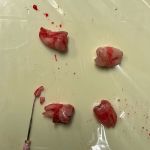 LAX DENTAL and ORTHODONTICS4.0 (107 review)
LAX DENTAL and ORTHODONTICS4.0 (107 review)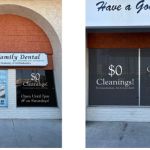 Art Family Dental - Aarti Shah DDS5.0 (241 review)
Art Family Dental - Aarti Shah DDS5.0 (241 review)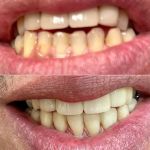 TK Dental Wayne, NJ | General, Cosmetic, Restorative Dentists. Dental Implants, Crowns, Bridges | Tatyana Kaminar DDS4.0 (139 review)
TK Dental Wayne, NJ | General, Cosmetic, Restorative Dentists. Dental Implants, Crowns, Bridges | Tatyana Kaminar DDS4.0 (139 review) The Importance of Oral Health Education During Pregnancy for a Healthy Pregnancy
The Importance of Oral Health Education During Pregnancy for a Healthy Pregnancy Best Tips for Brushing Your Teeth Properly for Healthy Gums: Essential Techniques for Oral Health
Best Tips for Brushing Your Teeth Properly for Healthy Gums: Essential Techniques for Oral Health Why Skipping Dental Checkups Can Lead to Bigger Oral Health Problems
Why Skipping Dental Checkups Can Lead to Bigger Oral Health Problems Advantages of Porcelain Dental Restorations
Advantages of Porcelain Dental Restorations How Can Diabetes Cause Tooth and Gum Problems? Preventing and Managing Oral Health Issues
How Can Diabetes Cause Tooth and Gum Problems? Preventing and Managing Oral Health Issues Healthy Habits for Promoting Good Oral Health and Hygiene: Tips for a Healthy Smile
Healthy Habits for Promoting Good Oral Health and Hygiene: Tips for a Healthy Smile